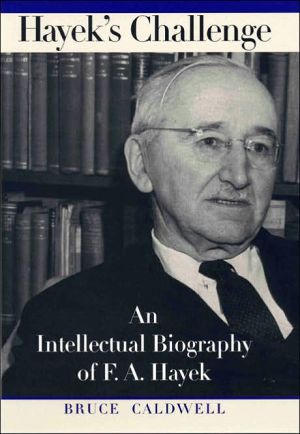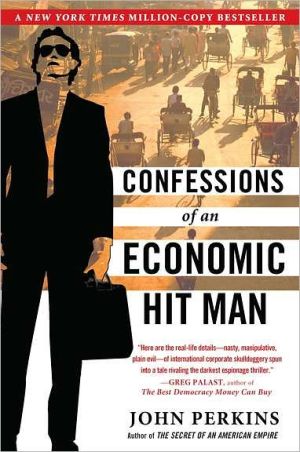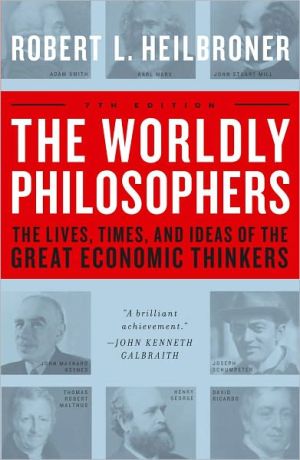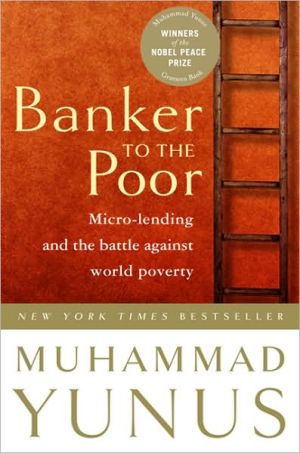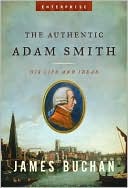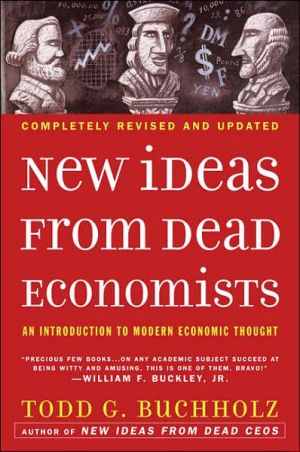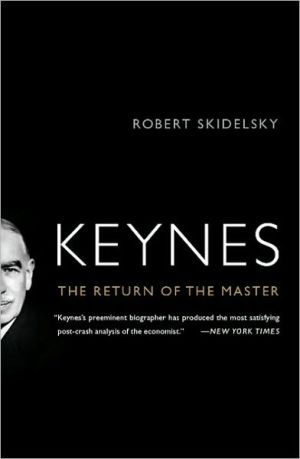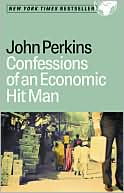Hayek's Challenge: An Intellectual Biography of F. A. Hayek
Friedrich A. Hayek is regarded as one of the preeminent economic theorists of the twentieth century, as much for his work outside of economics as for his work within it. During a career spanning several decades, he made contributions in fields as diverse as psychology, political philosophy, the history of ideas, and the methodology of the social sciences. Bruce Caldwell—editor of The Collected Works of F. A. Hayek—understands Hayek's thought like few others, and with this book he offers us...
Search in google:
Friedrich A. Hayek is regarded as one of the preeminent economic theorists of the twentieth century, as much for his work outside of economics as for his work within it. During a career spanning several decades, he made contributions in fields as diverse as psychology, political philosophy, the history of ideas, and the methodology of the social sciences. Bruce Caldwell—editor of The Collected Works of F. A. Hayek—understands Hayek's thought like few others, and with this book he offers us the first full intellectual biography of this pivotal social theorist.Caldwell begins by providing the necessary background for understanding Hayek's thought, tracing the emergence, in fin-de-siècle Vienna, of the Austrian school of economics—a distinctive analysis forged in the midst of contending schools of thought. In the second part of the book, Caldwell follows the path by which Hayek, beginning from the standard Austrian assumptions, gradually developed his unique perspective on not only economics but a broad range of social phenomena. In the third part, Caldwell offers both an assessment of Hayek's arguments and, in an epilogue, an insightful estimation of how Hayek's insights can help us to clarify and reexamine changes in the field of economics during the twentieth century.As Hayek's ideas matured, he became increasingly critical of developments within mainstream economics: his works grew increasingly contrarian and evolved in striking—and sometimes seemingly contradictory—ways. Caldwell is ideally suited to explain the complex evolution of Hayek's thought, and his analysis here is nothing short of brilliant, impressively situating Hayek in a broader intellectual context, unpacking the often difficult turns in his thinking, and showing how his economic ideas came to inform his ideas on the other social sciences.Hayek's Challenge will be received as one of the most important works published on this thinker in recent decades.
Hayek's Challenge\ An Intellectual Biography of F.A. Hayek \ \ By Bruce Caldwell \ University of Chicago Press\ Copyright © 2003 The University of Chicago\ All right reserved.\ ISBN: 0-226-09193-7 \ \ \ Introduction\ Hayek is a puzzle. Certainly he started out as one for me, now some twenty-odd years ago. \ It was the spring of 1982, and I was finishing up a postdoctoral year at New York University (NYU). An assistant professor, I had received my doctorate in economics a few years earlier with a specialization in the history of economic thought. My thesis had carried the earnest and pedantic title "The Methodology of Economics from a Philosophy of Science Perspective," and part of the reason I was at NYU was to try to transform it into a book that people might actually want to read. But I was also there to study Austrian economics or, more precisely, to learn more about the distinctive methodological views of the Austrians. These differed radically from, and, indeed, directly criticized, the positivistic pronouncements of mainstream economists. In particular, I wanted to know more about the rather strange-sounding apriorist methodology that had been advocated by Ludwig von Mises. I knew next to nothing about Hayek.\ NYU was very much the place to go if you wanted to learn about the Austrian movement. There was (and still is) a formal program dedicated to the study of Austrian economics there, withcourses, a weekly seminar, and funding for faculty positions, postdocs, and graduate students. The faculty members present that year included Israel Kirzner, Mario Rizzo, Jerry O'Driscoll, and (in the spring) Ludwig Lachmann. Larry White was a visiting professor, Richard Langlois held another postdoc, and among the dozen or so students were Don Boudreaux, Mark Brady, Sandy Ikeda, Roger Koppl, Kurt Schuler, and George Selgin. It was a great gathering of minds and personalities and, for me, a very rich experience.\ That spring, Jerry O'Driscoll handed me a book by Terence Hutchison and said, "So what do you think of his argument about Hayek's U-turn?" Hutchison had claimed that Hayek underwent a "methodological U-turn" in the mid-1930s. More precisely, he had argued that the publication in 1937 of an article by Hayek titled "Economics and Knowledge" marked Hayek's turning away from Mises's apriorist approach and toward the falsificationist methodology propounded by the philosopher Karl Popper (Hutchison 1981, chap. 7; see also Hayek [1937] 1948a).\ The claim certainly seemed strange to me. I had studied Popper's thought carefully for my dissertation and now knew more about Mises's ideas, and, frankly, it is hard to conceive of two viewpoints more at odds with one another. How could anyone change so much as to switch from one to the other? Yet it was also evident that Hayek was close friends with both men. Hutchison was a leading historian of thought who had lived through the period in question, and he provided detailed textual evidence to support his argument. So Hutchison's interpretation presented a puzzle, and it was in trying to solve that puzzle that I began to do research specifically on Hayek. I have been at it ever since, even though people who care about me have warned me against putting so many of my eggs in one basket. I hope that, in this introduction, I am able to convey some of the reasons why I ended up doing so.\ * * *\ For the first eight or nine years of his academic life, the economist F. A. Hayek wrote in German. Afterward, he wrote principally in English, at least until he moved to Germany in 1962. Perhaps because of the novelty and challenge of trying to communicate ideas in a new language, he chose his titles with considerable care. Sometimes he made allusions to other works. Thus "The Trend of Economic Thinking," his 1933 inaugural lecture at the London School of Economics, alluded to The Trend of Economics, a volume edited by Rexford Tugwell that had appeared in America a decade before (see Hayek [1933] 1991c; Tugwell [1924] 1930). He got the idea for the title of his most famous book, The Road to Serfdom ([1944] 1976b), from a phrase used by Alexis de Tocqueville, "the road to servitude" (see Hayek 1983b, 76). And I offer as a conjecture that the title of his Finlay lecture, "Individualism: True and False" ([1946] 1948c), was a reference to passages about individualism in Oscar Wilde's "The Soul of Man under Socialism."\ On other occasions, titles had multiple meanings. The paper that gave rise to Hutchison's claim about Hayek's "methodological U-turn," "Economics and Knowledge," was one of these. Its subject was the assumptions that are made in economic theories about agents' knowledge, but it was also about what economists themselves could know. It would seem that Hayek's Nobel address, "The Pretence of Knowledge" ([1975] 1978e), can be similarly interpreted. My own title, Hayek's Challenge, follows Hayek's lead; it refers to the multiple challenges that surround his work.\ Hayek himself, of course, faced challenges. Economists are used to the pose of being bearers of bad news. (I say pose because demand for our services, like that for those of undertakers and therapists, is highest when times are bad.) For Hayek, however, it was less of a pose than for most. It is not enough to say that some of his views were unpopular. For most of his life his economic and political positions were completely out of sync with those of the rest of the intelligentsia. He attacked socialism when it was considered "the middle way," when seemingly all people of good conscience had socialist sympathies. He disavowed the Keynesian revolution-even before it had properly taken place. In the latter half of the twentieth century, when some form of welfare state existed within virtually all the Western democracies, he criticized the concept of social justice that provided its philosophical foundations. Although a small group of libertarians and conservatives always read him with enthusiasm, for much of the century Hayek was a subject of ridicule, contempt, or, even worse for a man of ideas, indifference. Because of his political views, Hayek faced many challenges in trying to find an audience for his ideas among the thinkers of his day.\ Hayek also presents challenges to those who try to interpret his thought. (Since I am one of these, I may as well share the secret title of my book: Caldwell's Challenge.) There are multiple problems here.\ First, there is the simple fact that Hayek's writings lie within the Austrian tradition. Now, to be sure, in the 1930s that tradition was part of the then-developing mainstream in economics. In the postwar era, however, economics changed. One way to characterize the changes is to say that the discipline moved from interwar pluralism to postwar neoclassicism (Morgan and Rutherford 1998). Another is to point out that the mainstream experienced a number of "revolutions": the Keynesian revolution, the econometrics revolution, the general equilibrium or formalistic revolution, and so on. However one might choose to characterize the changes, it is clear that the Austrians did not participate in them. More strongly, people like Hayek and Mises actively opposed them. It may, therefore, be difficult for modern-day economists (who I hope make up at least a portion of my audience) to make much sense of the Austrians. Part of my task is to provide the necessary background to make the Austrians' viewpoint comprehensible to those unfamiliar with their tradition.\ The volume of Hayek's work provides another daunting challenge for interpreters. Hayek lived from 1899 to 1992, and his writings span seven decades. Worse, he was incredibly prolific. Even worse, he did not restrict himself to economics, making contributions in fields as diverse as psychology, political philosophy, the history of ideas, and social-science methodology. I joke, of course, when I use the word worse, for part of Hayek's fascination is that he contributed, at times significantly, to so many fields. Studying Hayek forces you to read outside your field, and that can be a liberating experience. But, in this age of specialist training, it is also difficult not to feel inadequate when reading him, and his sheer reach makes any attempt at assessment of his ideas dicey, to say the least.\ An even more serious challenge for those who would interpret him arises from the fact that Hayek seems to have changed his mind about certain things over the years or, put in another light, that his work appears to contain contradictions. We will see, for example, that, in the course of one decade, Hayek seems simultaneously to have held the views that what he called equilibrium theory is necessary if one is to do economic science at all and that it is also a highly misleading model for understanding the workings of a market system. Within the covers of the same book he will both argue that policies that aim at income redistribution violate the rule of law and endorse the provision of a "safety net" that is itself an instrument of redistribution. He will trumpet both methodological individualism and group selection, positions often viewed as mutually exclusive. Now, if one disagrees with Hayek on ideological or other grounds, these apparent contradictions are not, of course, a problem. They are a solution, for they provide grounds for dismissing him. But, for someone who wants, as I do, to make sense of Hayek, to provide a plausible reading of the development of his ideas, they pose real difficulties.\ There is a huge secondary literature on Hayek, and it produces challenges as well. Part of the problem derives from the fact that Hayek was, and is, a controversial figure. Many who write about him have strong opinions about whether he was right or wrong, and this affects their readings. Furthermore, the enormous scope of his corpus makes for multiple interpretations, as writers draw on different parts of his work. Finally, some people use Hayek's writings as input into their own substantive theories, and, in such cases, the temptation is great to interpret Hayek himself as participating in the same project. As a result, very different interpretations of what Hayek was up to exist-probably more so than for most writers. As I said, I hope to provide a plausible reading of the development of Hayek's thought. But part of my job will also be to confront my own readings with others that exist in the secondary literature.\ Another set of challenges has to do with what Hayek has said about himself. Hayek occasionally introduced autobiographical elements into talks and papers, and he even gave a few interviews, but the degree of autobiographical revelation changed dramatically when he was awarded the Nobel Prize in economics in 1974. A few years later, under the auspices of an Oral History Project at the University of California, Los Angeles, Hayek agreed to sit for an extensive set of interviews. The sessions stretched over a number of weeks in late 1978, with nine different people asking him questions. The topics covered ranged far and wide, and there appears to have been little attempt to coordinate what was asked, so sometimes he repeated himself. Hayek discussed his personal life, his academic history, his ideas, his times, his interactions with and impressions of the many great and near-great figures whose paths he crossed. The resulting 493-page transcript (Hayek 1983b) is a wonderful source of information on all aspects of his life and work.\ So why is this a problem? As Malachi Hacohen has amply demonstrated in his superb new biography of Karl Popper (see Hacohen 2000), sometimes autobiographical accounts are inaccurate. Popper wrote an autobiographical sketch for the volume on his work in the Library of Living Philosophers series, a slightly revised version of which later appeared in book form as Unended Quest (1976). Popper spent a long time working on the manuscript, producing a number of drafts before he was finally done. Despite this, Hacohen discovered factual errors in Popper's careful reconstruction, some of them serious. Although he was at first inclined to think that Popper had intentionally fudged the record, he later came to the conclusion that the mistakes were not intentional. Popper just remembered things wrong. In this, Hacohen concluded, he was doubtless anything but abnormal: "Autobiographical anachronism is common, and Popper's memory failure may not even be as surprising as I still occasionally find it" (Hacohen 2000, 14).\ Hayek had prepared for the oral-history interviews, of course. Still, he was over seventy years old when he gave them, and he was responding extemporaneously about events some of which had taken place forty or more years earlier. It also appears that Hayek had answers for certain questions almost programmed, using exactly the same wording again and again. This is not to suggest that he made things up. But, after a while, what a person recalls may be the story that he told last time, rather than what actually happened. The interviews provide many insights, but they must be handled with care. This is particularly true when the subject matter is sensitive or controversial and when independent verification of his claims is absent.\ The final challenge for the Hayek interpreter is the question, Why? Hayek's research path was anything but straightforward. This was a man who, after all, started out as an economist but whose most famous (or, for some, notorious) book, The Road to Serfdom, was in part a political tract. Furthermore, right after he published The Road to Serfdom, he started work on a book on theoretical psychology. He would later say that the resulting volume, The Sensory Order ([1952] 1967h), was extremely important for understanding his later work. But he never said how or why, and, for that matter, subsequent references to The Sensory Order were not particularly prominent. Later in his career, he would turn to political theory, and, ultimately, he would offer an evolutionary theory of the development of human social norms. These sorts of violent twists and turns in research interest cry out for explanation. Is it possible to make sense of Hayek's journey? That is certainly one of the biggest challenges that we face.\ The challenges, I can say, have been well worth it. (I speak for myself; I am writing this introduction after having finished writing the book.) Even after all these years, I have at times felt exhausted from, but have never grown tired of, wrestling with Hayek. His mind, of course, fascinates. Anyone with his breadth of interests, with his ability to write on so many different subjects, cannot fail to attract an intellectual historian. Since I was a boy, I have always loved puzzles, so I have enjoyed the puzzling parts, too, the work of trying to piece together, to make sense of, his odyssey. I may as well admit that the controversial nature of his writings also appeals to my contrarian instincts; I have come to enjoy the challenge of presenting his ideas to audiences in which I know there are people who are prepared to dismiss them. In trying to be a good historian, I have been forced in explicating Hayek to confront my own commitments and biases, simply because I have been challenged so often to defend my readings. You can judge for yourself the extent of my self-delusion on this score.\ Finally, Hayek's story is, well, just a plain good story. The people he knew and those he corresponded with, worked alongside of, and argued against include many of the most influential economists of the twentieth century. His is, in many ways, the story of the development of modern economics. But, because Hayek so frequently disagreed with those around him, his was a contrapuntal variation, parallel but contrasting, and the more intriguing for it. It is a great tale, one that I will relish recounting, and I suspect that my enthusiasm will shine through my analysis.\ * * *\ The plan of the book is straightforward. Part 1 is intended to provide background on the Austrian school. Given that the Austrian approach often differs from that of the mainstream within economics, few are likely to question the need for some sort of background. It may be appropriate, however, for me to offer some justification for the length of this part, for long it is.\ Here we will meet Carl Menger, whose 1871 Principles of Economics became a founding document of the school (see Menger [1950] 1976). Because the book is a foundational document, we will explore in detail a variety of its themes. But, to understand the Austrian approach, it is not enough simply to review its proponents ideas. One must also recognize the fundamental fact that the Austrian school was a movement formed in opposition; indeed, its very name was given to it by its detractors and intended as a slur of sorts. We will, therefore, need to spend some time on the Austrians' first rival, the German historical school, and on the battles, methodological, political, and academic, that ensued as the two schools vied with one another for power, prestige, and, not least of all, academic positions. The Germans quickly subdued their Austrian competitors, although, in a way, the Austrian movement became more united for it: as the Viking motto goes, things that do not kill you outright tend to make you stronger. The rivalry between the two schools of thought, known as the Methodenstreit, or "battle over methods," was a defining element in the first twenty years or so of the Austrian school's existence. But it also obscured the many similarities between the two schools, similarities that are the more striking if one compares either school to what passes today for the mainstream of economics. Unraveling all of this is one of the chief goals of the first part of the book.\ (Continues...)\ \ \ \ \ Excerpted from Hayek's Challenge by Bruce Caldwell Copyright © 2003 by The University of Chicago . Excerpted by permission.\ All rights reserved. No part of this excerpt may be reproduced or reprinted without permission in writing from the publisher.\ Excerpts are provided by Dial-A-Book Inc. solely for the personal use of visitors to this web site. \ \
AcknowledgmentsIntroduction1IThe Austrian School and Its Opponents - Historicists, Socialists, and Positivists1Menger's Principles of Economics172The German Historical School393The Methodenstreit644Max Weber and the Decline of the Historical School835Positivism and Socialism100IIHayek's Journey6Hayek in Vienna1337Monetary Theory and Methodology1508Hayek at the London School of Economics1659Some Methodological Debates of the 1930s18210"Economics and Knowledge" and Hayek's Transformation20511The Abuse of Reason Project23212Individualism and the Sensory Order26113Rules, Orders, and Evolution288IIIHayek's Challenge14Journey's End - Hayek's Multiple Legacies32315Epilogue: A Meditation on Twentieth-Century Economics370Appendixes407Bibliography439Index473
\ The Economist"Guides are needed, and Bruce Caldwell's Hayek's Challenge is a welcome introduction."\ \ \ \ \ Times Higher Education Supplement - Howard Davies\ "Caldwell's approach to the task of deconstructing Hayek's intellectual influence is an original one. . . . It is the intellectual voyage that interests Caldwell. . . . He charts his lengthy struggle with multiple equilibria and attempts to reconcile what have often seemed inconsistencies in his thinking. And, he shows how Hayek's interests, in later life, shifted away from pure economics and towards political theory and philosophy. . . . His exegesis of Hayek's main works is outstandingly lucid and may bring his ideas to the attention of a new generation of students. . . . Hayek's Challenge can be recommended to both the specialist and general reader."\ \ \ Independent"Bruce Caldwell's intellectual biography of the great Austrian is a wonderful work."\ \ \ \ \ ChoiceNamed "Outstanding Academic Title" by Choice\ \ \ \ \ \ Claremont Review of Books"A carefully written, impeccably researched, and thoughtful book that is sure to become a standard in Hayek scholarship."\ \ \ \ \ EH.Net"A finely nuanced addition to the literature of which [Caldwell] has such a fine command. The study represents a landmark in studies of Hayek and the development of Austrian economics for either of which it will long remain essential reading."\ \ \ \ \ Journal of Markets and Morality"A significant contribution to philosophy and to economics. . . . Caldwell has wrestled with several complex themes in Hayek's philosophical writing and has provided us with an indispensable guide."\ \ \ \ \ Business History"A good place to start with if you want to understand or even emulate Hayek."\ \ \ \ \ Journal of Economic Behavior & Organization"Caldwell's pleasant and engaging book is an enduring contribution to Hayek scholarship.. It should be of interest outside the world of Hayek scholarship, too. Hayek has as good a claim as anyone to be the most important economist of the 20th century. . . . . Besides the excellent history of the early Austrian school, besides many particular insights and facts, the book has one great merit that more than suffices to make it a valuable contribution . . . its emphasis of the role of complex systems on Hayek's thought."\ \
